2025: The Year of ‘Soft Clubbing’
Nightlife may be in decline, but the way we experience music continues to evolve.
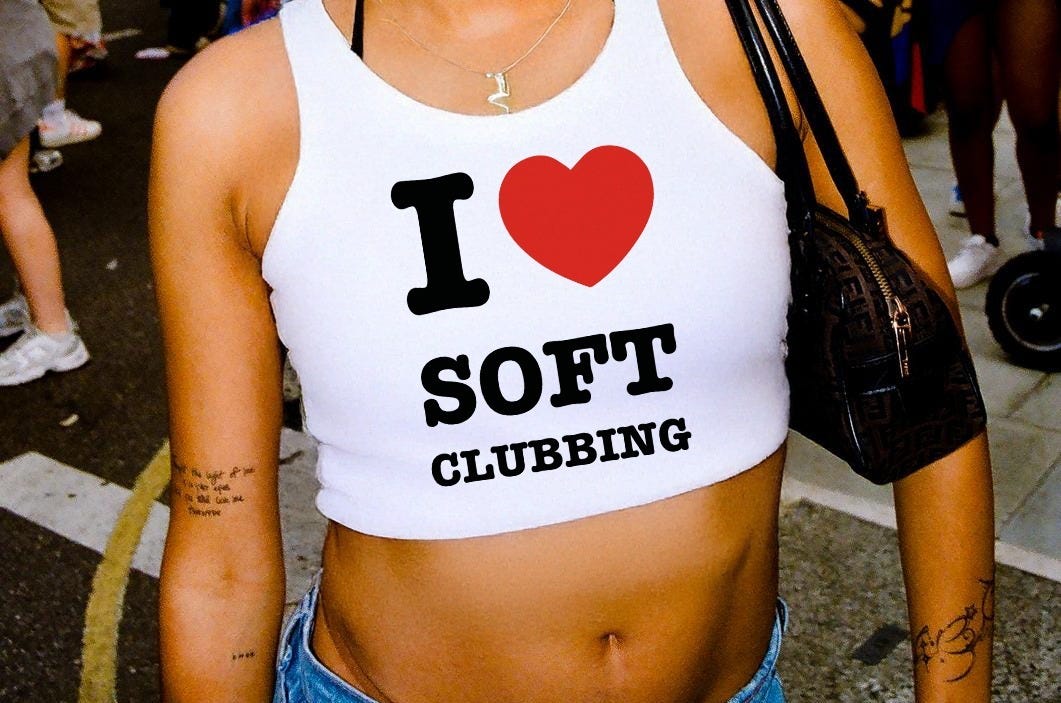
2024 was the year when ‘running clubs became the new dating apps’, reflecting a broader trend where social clubs rose in popularity across different corners of the world, becoming hubs for new connections – romantic, platonic, and beyond. Some took this further; in Brooklyn, New York, a ‘love wall’ appeared, functioning as an in-person dating app, with ‘yearners’ posting physical dating profiles and seeking new lovers via the famous wall. However the rise of social clubs presented something way more than just a shift in dating habits, it was a return to being back outside and showcased how in a post pandemic world, IRL is the new counterculture. As people crave deeper and more intentional IRL experiences, the way we socialise is changing too, leading some to even say that nightlife is dead. But is it?
If you live in the UK, it's easy to understand why the phrase ‘nightlife is dying’ has gained traction. Venues are closing down at an alarming rate and those that remain often face restrictive licences and early closing times. It is fair to say the horizon is bleak for UK nightlife and that it’s certainly on a downward trend – it may be down, but it’s certainly not out.
In the wake of nightlife’s decline, how we experience music and choose to socialise is evolving. In 2024, music experiences have morphed and diversified into areas that shift away from late-night partying. Listening bars are trending globally, and sonic experiences have grown in popularity. For instance, Devon Turnbull's 'The Listening Room' at 180 Studios featured hi-fi sound sessions hosted by music connoisseurs like Haseeb Iqbal and Judah. Additionally, 180 Studios' 'Reverb' live sessions, facilitated by The Vinyl Factory, showcased artists such as John Glacier, Bikoko, Mansur Brown, and even Martine Rose. Beyond 180 studios, we’re seeing music take key focus in spaces it previously didn’t, enhancing the overall experience. Spaces like Knight Club host 'Last Tuesdays’, end-of-month events where a vinyl selector plays to an audience of chess enthusiasts. Alternative music experiences continue to emerge, such as Steve Cardigan's 'AM.RADIO' in LA, a monthly morning gathering at a coffee shop featuring DJ sets.
Recontextualising spaces by adding live music experiences is a growing trend. DJ Louis Bekk exemplifies this shift, having transformed a bakery in Antwerp, a gym in Madrid, a restaurant in Istanbul, and a beigel shop in London into once-off music venues. Curators like Louis and Steve are enhancing everyday experiences, demonstrating that music is no longer a secondary component but a key part of the overall atmosphere. These spaces that are part of our everyday lives, perhaps once considered mundane, are now standing out by hosting such experiences, a necessity in a sea of sameness. With countless bakeries, what gives you the edge?
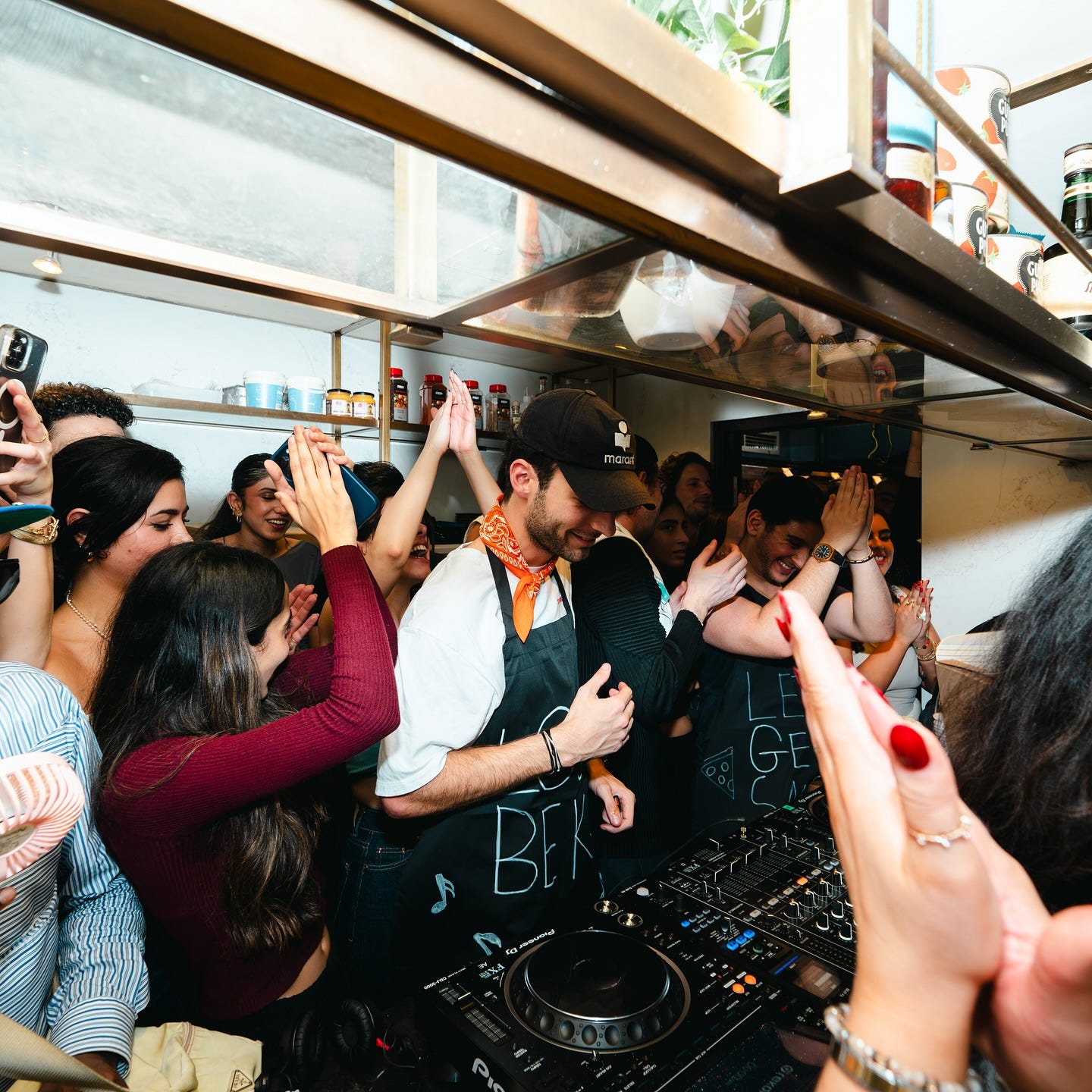
I term this shift ‘soft clubbing’, describing the desire to experience a curated sonic atmosphere without being confined to a traditional event space, let alone a full-on club experience. Soft clubbing speaks to the shift in our social needs in a post-pandemic world, the very same needs that have led to a rise in run clubs and hobby clubs such as chess and bowling. Previously the club was an adequate provider of your weekly dose of social interaction, a space to dance, socialise and, for many, get intoxicated too. However, for a generation that is drinking less and desiring more socially, the club is no longer the primary medium for our social needs. People are demanding deeper connections, turning to communal spaces to fulfill these needs. Only a few things bring people together like music, that's why curated sonic experiences are still finding their way into these communal spaces and therefore redefining how we experience music.
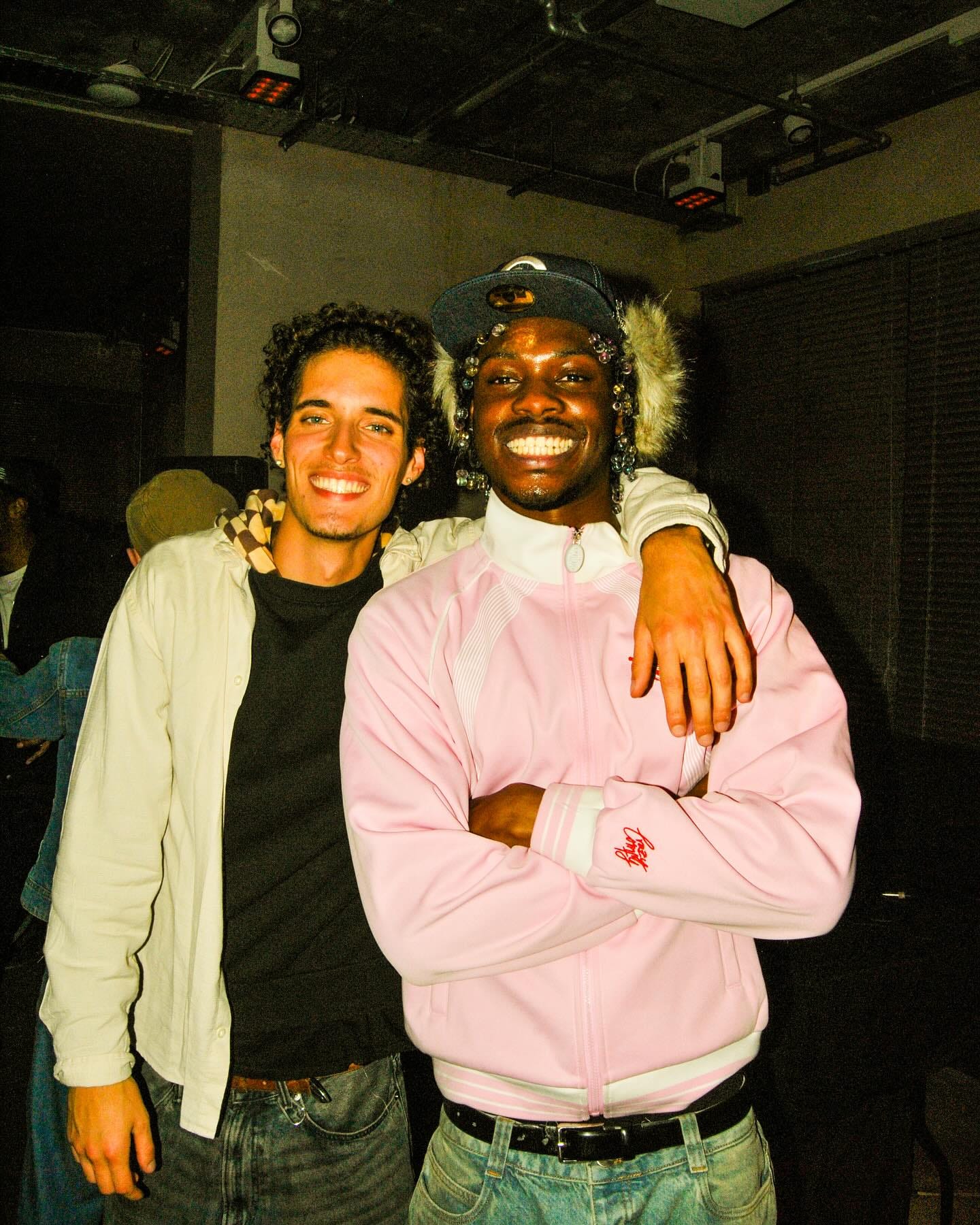
This shift is not necessarily a divorce from partying, rather a renewal of vows. In London, we’re seeing an increase in events that start and end early. Recently, Transparent Studios hosted an event where saxophonist Solaaris invited collaborators for a night blending live instruments with DJ sets at a photography studio in East London; the party ran from 5 pm to 11 pm. Similarly, Brief Encounters, an event by soltura, showcases talent rarely booked in the UK, featuring emerging artists like bib sama, Don Sinini, Rosier, and RJ. Brief Encounters typically runs for 4.5 hours, usually ending at 11:30 pm, living up to its name. Speaking to soltura she mentions her intentions behind curating an experience that is not a typical party; “London has plenty DJs and club nights to entertain you on the weekend, I don’t need to be doing that. There’s no clout attached to the events so people are either coming to support their mate or because they have a genuine curiosity and I love that.” Recently, Club Are, an event series blending audiovisual exhibitions with dance parties, hosted a day-to-night party starting at 3:30 pm and ending at 1 am, solely due to venue licensing. Community-driven nightclub, FOLD throws a lot of day-to-night parties with their bi-weekly UNFOLD event typically starting at 2pm and running till the AMs on a Sunday.
Outside of London, During my time in Dar es Salaam I had the pleasure of experiencing ‘Hello Jua (Swahili for ‘Sun’)’. Hello Jua is a monthly sunrise beach party, starting at 5AM and running until 10AM, with a mix of people who are either extending their night into the morning and others who are starting their day with a party. Hello Jua is well catered to its timing, upon arrival guests receive chicken mushroom soup at the entrance and then served ginger tea once they’re seated, to top it off, a meal is inclusive of your entry ticket. Packed to the brim, Hello Jua highlights that there’s a global appetite for parties outside of traditional hours.
Beyond the daytime shift, we’re also seeing a rise of more intimate recorded experiences. While previously platforms like Boiler Room and Cercle served a more hardcore recorded experience, the space has widened and is increasingly populated with more intimate experiences. Platforms like Aprtment Life feature sets recorded in the comfort of an apartment, and Elevator Music provides recorded sets from inside an elevator. Black House Radio take it a step further, with DJs playing sets while seated on a couch and guests filling up the living room. These new forms of recorded experiences further highlight a shift towards a soft clubbing mindset.
However, certain sounds are simply made for the nighttime and are best experienced in dark, immersive settings. Those sounds have a community and so long as they do, their events will have an audience, one that is specifically catering to them and therefore attracting an audience who are solely there to experience those sounds. In London, venues like Ormside, Venue MOT, and FOLD serve as proof of this. Situated in the industrial parts of London, they are typically harder to get to, which then means that those making an effort to attend events situated in those areas are doing it out of shared passion and curiosity, thus curating an audience that is a community of people with a shared interest in those specific sounds.
Today's social clubs, such as chess clubs and running clubs will increasingly host events beyond their regular activities. These events will have the support of its community members, an opportunity to see their fellow members in a different context and have a dance with them too.
Interestingly, the Mayor of London, Sadiq Khan, has recently launched the city’s first-ever “Nightlife Taskforce” with the aim of addressing the serious challenges London’s nightlife scene is facing. Led by Fabric’s co-founder Cameron Leslie, the taskforce also includes Pxssy Palace founder Nadine Noor, Colour Factory founder Nathaneal Williams, Daytimers founder Provhat Rahman, and Alice Hoffmann-Fuller of Corsica Studios – An avengers level team, well-suited for the job at hand. The taskforce will collaborate with the Metropolitan Police, councillors, and Transport for London (TfL) to develop effective solutions. With such concerted efforts being put in place, we can hope that drastic change and improvement for London’s nightlife scene will come from this.
With a range of ways to explore this ‘new nightlife’ in 2025, how will you embrace soft clubbing?
Until next time,
Yus



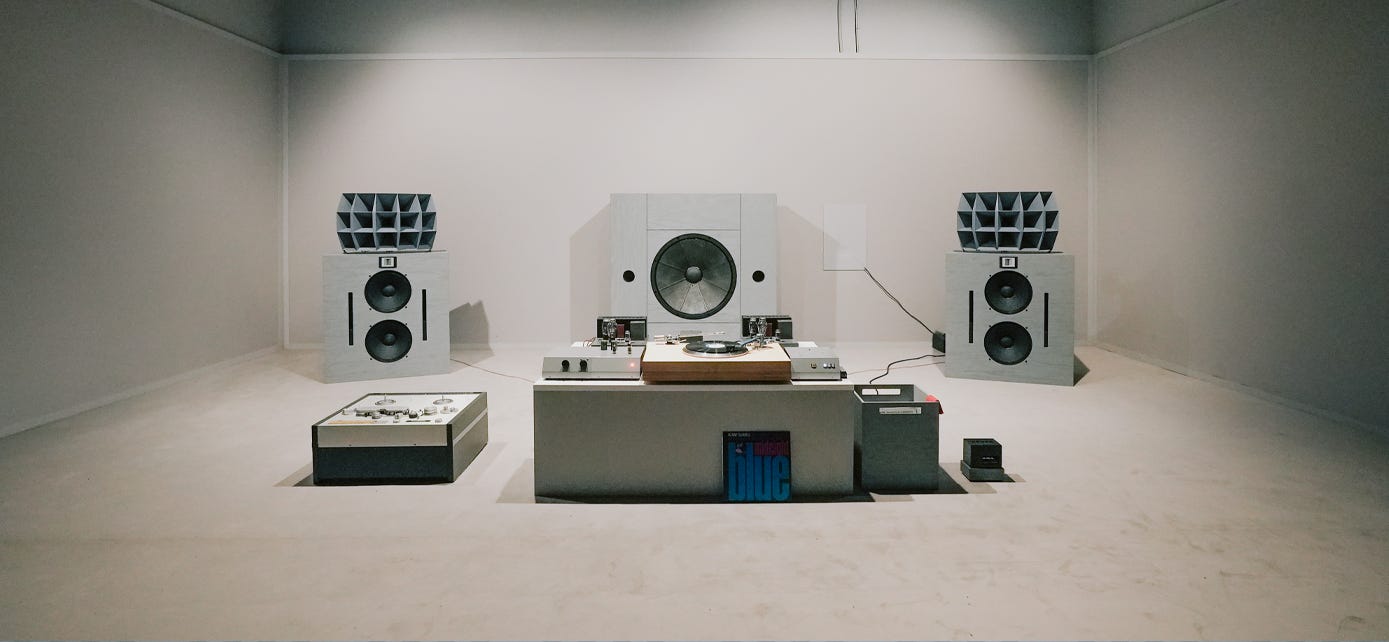
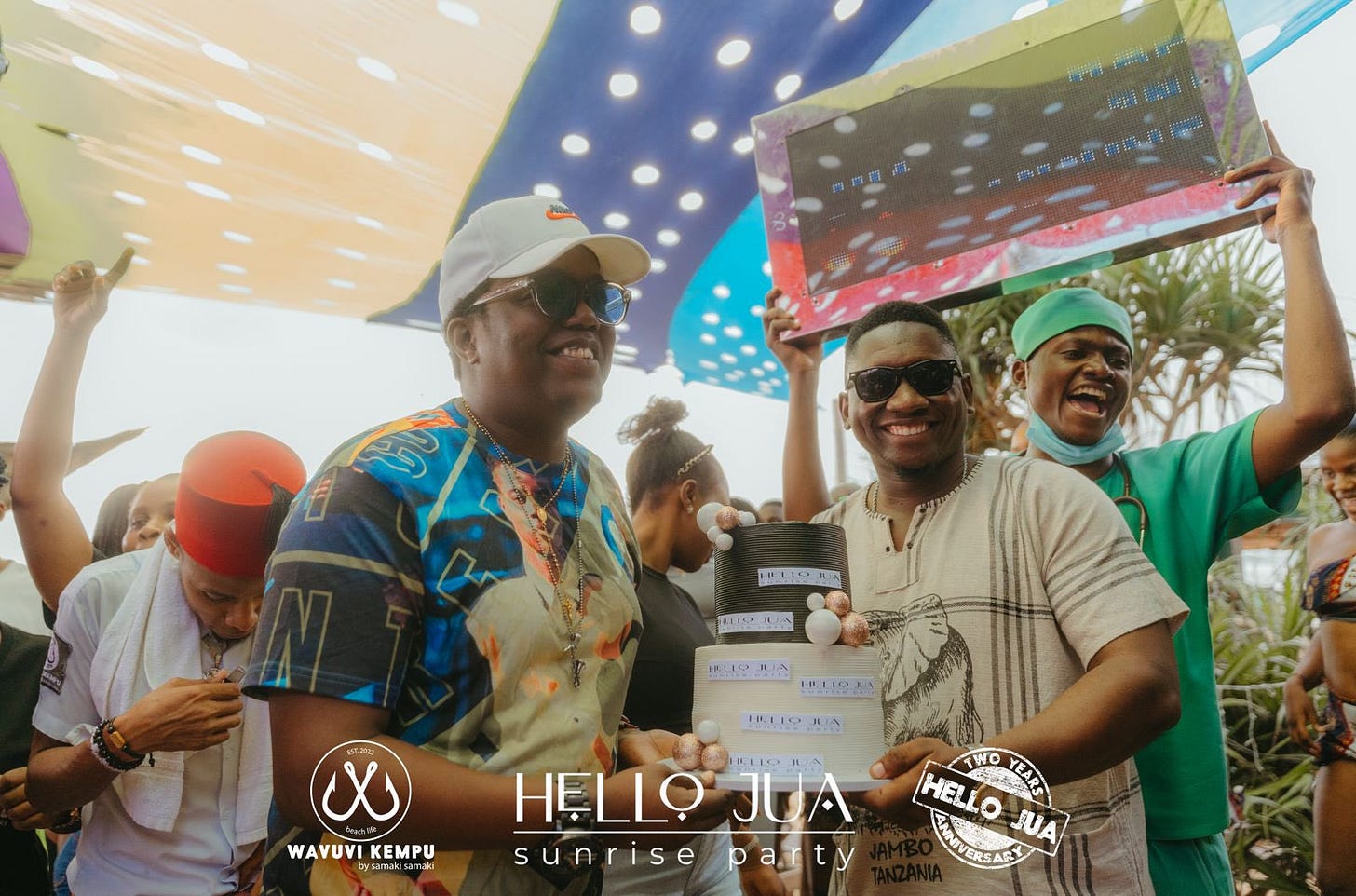
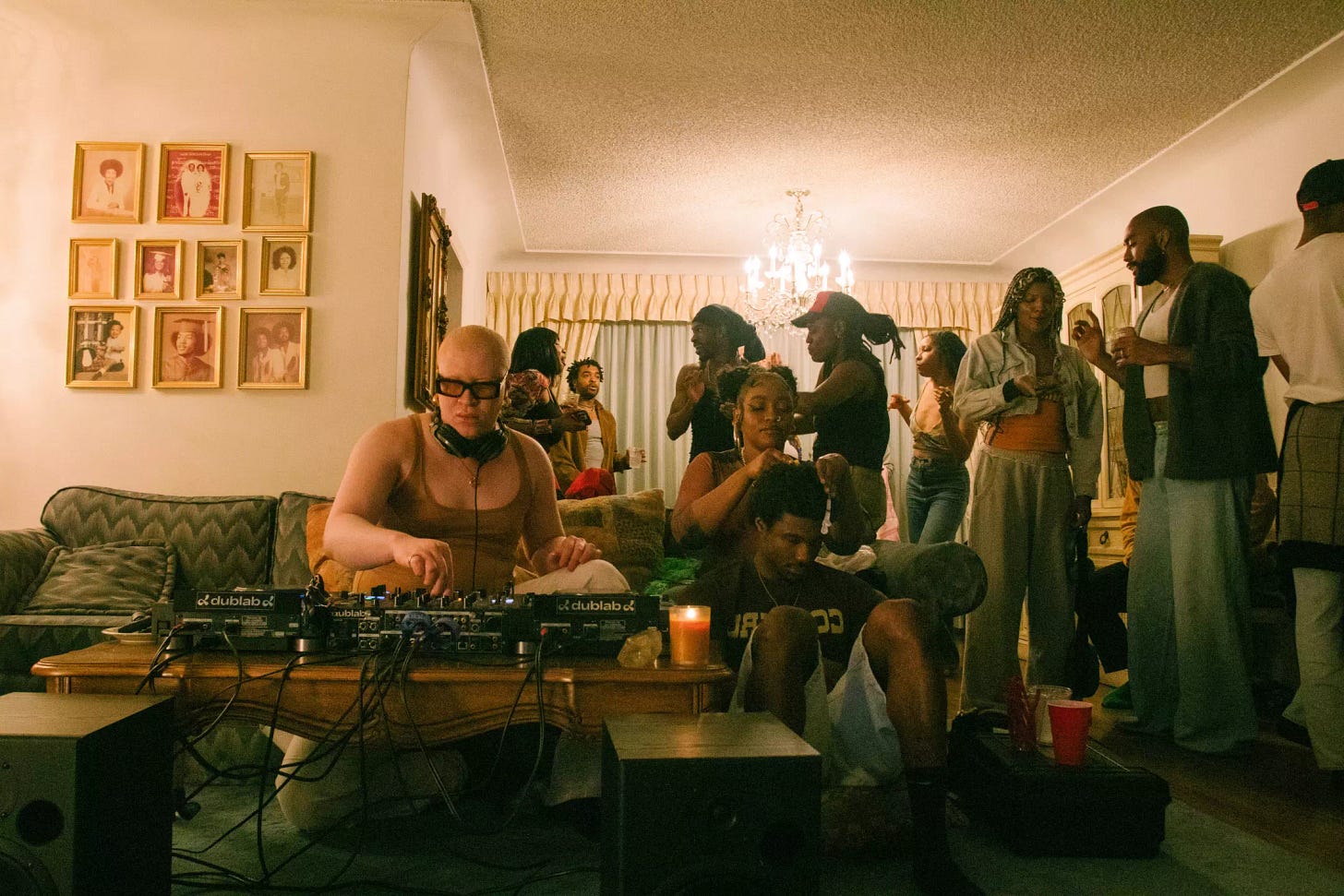
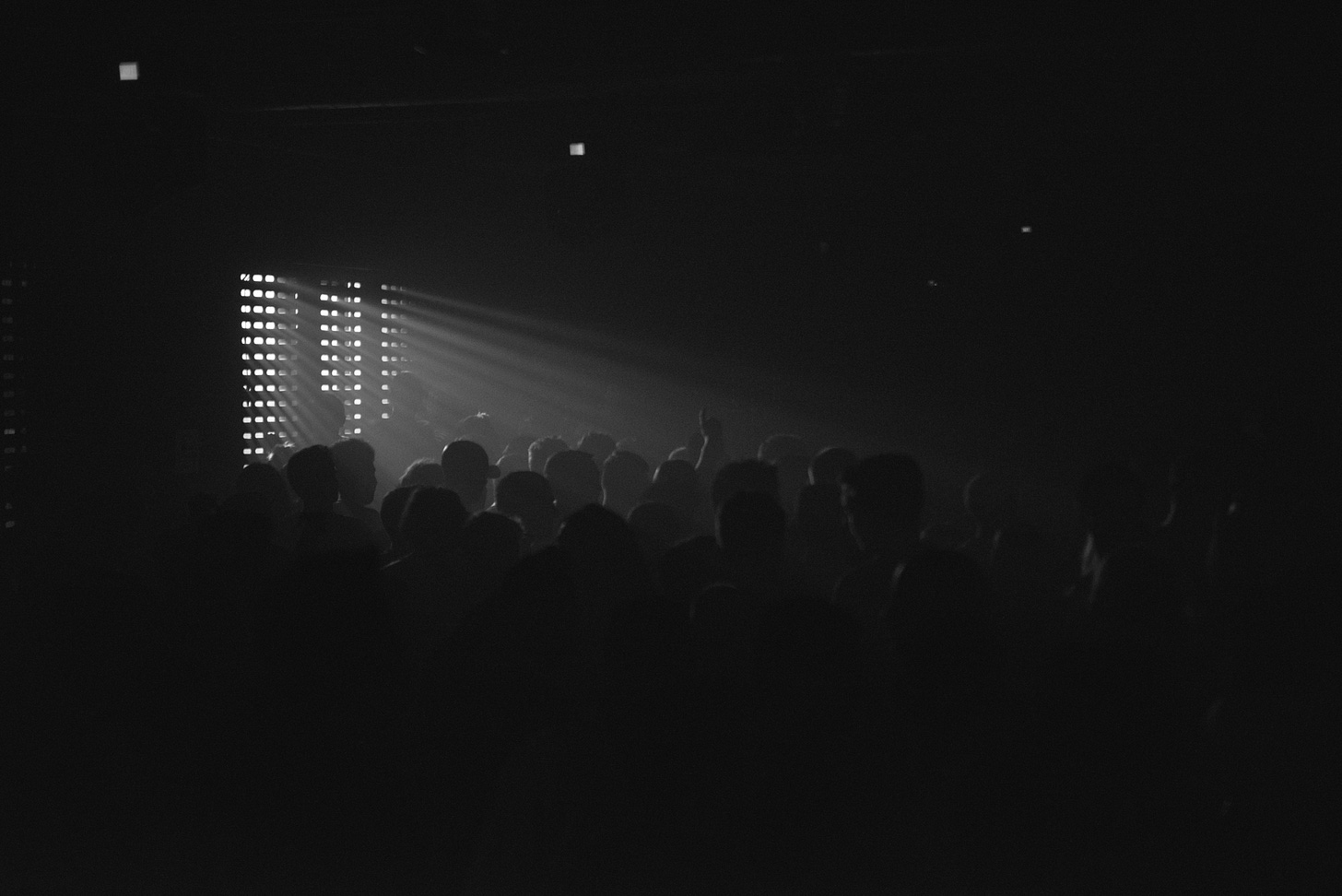
Really enjoyed this read Yus! Hope you’re good! X
nice one Yus!